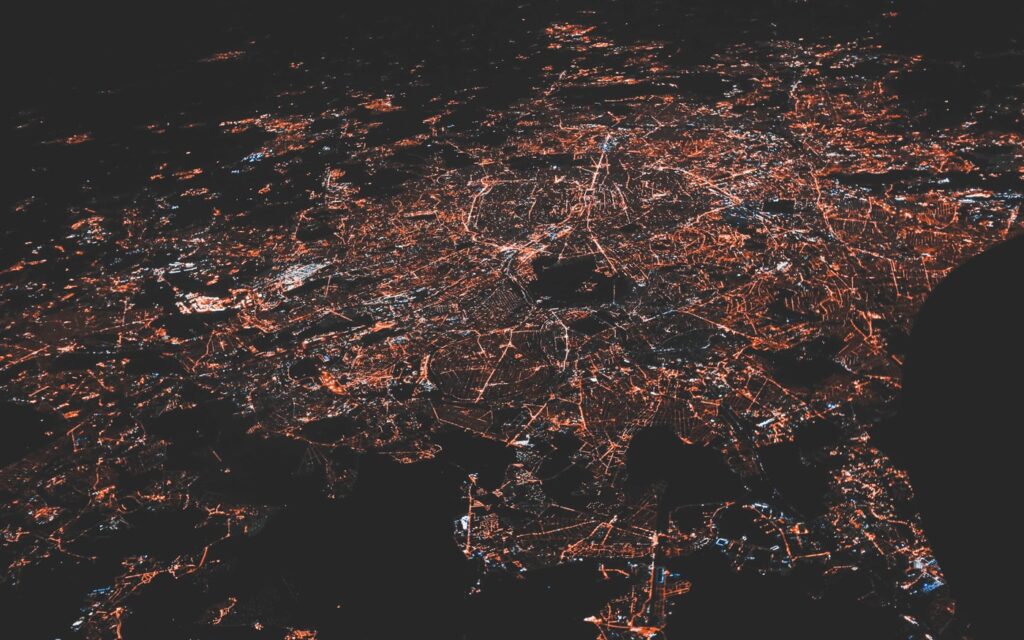Social Networks and How They Shape Our Lives

The concept of networks has been explored in some of the Anthology’s previous blogs, however my interest in networks is more firmly rooted in our own personal, societal networks and how they affect our lives on a deeper level. This subject, however, is wide reaching, so throughout this blog I aim to dive into some of the core aspects of human networks and the part they play in our lives.
While social networks, historically, have a much different meaning than they do today, they have still always been very much around and in use. In the twenty-first century, the phrase social network has come to be most commonly referred to in terms of the internet and applications (apps) on smart phones. These digital devices are made to connect people, and act as some people’s primary social network. It is entirely possible to build a social network, whether that be friends or work connections, via the internet and apps without meeting any of the people in person. It is possible to meet a romantic partner and start a relationship using apps or the internet. The internet has completely redefined social networks as we knew them, however they still act in much the same way as they always have.
As we make new acquaintances, they become part of our social network, and as they become known to us, we interact with them, we communicate with them and we cooperate with them. Apicella, C., Marlowe, F., Fowler, J. et al explains how hunter-gatherers also had social networks, and however different they were, there was also striking similarities. ‘Certain elements of social network structure may have been present at an early point in human history. Also, early humans may have formed ties with both kin and non-kin, based in part on their tendency to cooperate. Social networks may thus have contributed to the emergence of cooperation.’1 Social networks are a part of humanity, and much more ingrained in our lives than we truly realise. We use social networks to function, to work together, to socialise and ultimately to shape our lives.
Networks, which were defined in a previous blog, are ‘a complicated system of roads, lines, tubes, nerves, etc. that are connected to each other and operate together’.2 This definition is an apt depiction of not only roads, lines, tubes and nerves, but of the invisible connections of relationships that bind people together and create social networks. The intricate nature of relationships, both between family and friends, are one of things that define our race. The connections that we share between us have fascinated us for generations, which only makes it more clear how important they are. The findings from Apicella, C., Marlowe, F., Fowler, J. et al point out that even in hunter-gatherer communities, there was a focus on relationships between kin and non-kin, that were dependent in part on their tendency to cooperate. Relationships, whether or not they are based on shared genes or if they are developed over time by communication and shared experiences, are what make up our social networks and make them so important to who we are. Motivational speaker Jim Rohn famously said that we are the average of the five people we spend the most time with, and while he was referring mostly to the success one person may want to gain, there is truth that the people around us, in our social networks, influence the way we think and especially the way we feel. In an article that explains how others influence your happiness, Dr Shilagh Mirgain states, ‘Happiness isn’t just a personal experience, it is actually affected by the individuals around you.’3 Our social networks are not only utilised by us for work or socialisation purposes; they are a means to our happiness.
Networks is a vast and complex subject that can be applied to many different facets of life. Social networks are what bind us together and has for centuries. They are ingrained in how we communicate, socialise and cooperate, and ultimately, they affect who we become and how we feel.
Tell us what networks mean to you. Submit your poetry, prose, art or photography with us here.
References:
Apicella, C., Marlowe, F., Fowler, J. et al. Social networks and cooperation in hunter-gatherers. Nature 481, 497–501 (2012). https://doi.org/10.1038/nature10736
Oxfordlearnersdictionaries.com. 2021. network_1 noun – Definition, pictures, pronunciation and usage notes | Oxford Advanced Learner’s Dictionary at OxfordLearnersDictionaries.com. [online] Available at: <https://www.oxfordlearnersdictionaries.com/definition/english/network_1?q=networks> [Accessed 1 May 2021].
Rohn, J., 2021. Surround Yourself With Successful People. [image] Available at: <https://www.youtube.com/watch?v=_e-fIAV5STg&feature=youtu.be> [Accessed 1 May 2021].
Mirgain, S., 2021. How others influence your happiness. [online] Uwhealth.org. Available at: <https://www.uwhealth.org/news/the-happiness-ripple-effect> [Accessed 1 May 2021].
 Previous Post
Previous Post Next Post
Next Post